 Danielle Procope Bell, Assistant Professor Danielle Procope Bell, Assistant Professor
College of Arts & Sciences
Bell studies late-nineteenth and early-twentieth century Black feminist thought with a particular focus on motherhood, reproductive/care labor, and femininity. She is also interested in Black maternal health advocacy and often collaborate with local community groups. |
 Sarah Bolivar, Assistant Professor Sarah Bolivar, Assistant Professor
College of Architecture & Design
Bolivar’s research explores how cultivating the public imagination, through multidisciplinary representation, participatory methods, and site-based experimentation, can help confront the biodiversity crisis and anthropogenic climate change. |
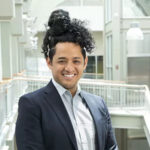 Daniel Chavez, Assistant Professor Daniel Chavez, Assistant Professor
Haslam College of Business
Having lived in five countries and ten cities, Chavez is currently interested in sales and pricing, applying quantitative models to large data sets and conducting experiments to provide insights to sales organizations on those topics. |
 James Coda, Assistant Professor James Coda, Assistant Professor
College of Education, Health, & Human Services
Coda’s research interests include LGBTQIA+ issues in language teaching and learning, gender and sexuality in education, queer theories and pedagogies, and teacher identity—more specifically, how LGBTQIA+ language educators’ identities impact their practice. |
 Jamien Coleman, Assistant Professor Jamien Coleman, Assistant Professor
College of Education, Health & Human Sciences
Coleman’s research centers on improving skill development in counselor training, exploring the quality of life for persons with psychiatric disabilities in culturally diverse populations, and treating substance use disorders and dual diagnosis. |
 Dashawna Fussell-Ware, Assistant Professor Dashawna Fussell-Ware, Assistant Professor
College of Social Work
Fussell-Ware is currently an early-career expert on the mental health of Black, Hispanic, and Latinx youth between the ages of 14 and 25, focusing on mental health literacy and its promotion as a pathway to eliminating these treatment disparities. |
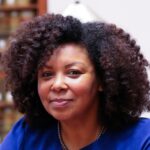 KK Kersey, Assistant Professor KK Kersey, Assistant Professor
College of Law
Kersey’s career began in the private sector, representing mostly marginalized youth who had been criminally charged in a high-volume public defender office. Her goal is to create scholarship in collaboration with practitioners about reimagining the juvenile carceral system and understanding youth behavior. |
 Hojung Kim, Assistant Professor Hojung Kim, Assistant Professor
College Architecture & Design
Kim’s scholarly pursuits focus on examining the confluence of traditional and regional building methods with contemporary design to tackle architectural challenges encountered by marginalized groups. Recently, his research endeavors have entailed collaborations with artisans from Southeast Asia in a reciprocal knowledge-sharing initiative. |
 Maurice Moore, Assistant Professor Maurice Moore, Assistant Professor
College of Arts & Sciences
Moore’s research is an exploration of sensorial embodied mark making both in text and performance-drawings. Artistic approaches include using a variety of wet and dry media, vocabularies, and bibliographies; remixing past drawings; collaging visuals and texts; and incorporating queer Black theory to create these new experimental marks. |
 Christina Najera, Assistant Professor Christina Najera, Assistant Professor
College of Communication & Information
Najera’s research interests are in the cognitive and emotional processing of messages related to risky driving behavior and body image. Overall, her work is focused on the development of effective messages that can impact the probability of participation in risky behaviors and serve to facilitate communications that will make our world a safer, healthier, and happier place. |
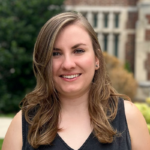 Cynthia Navarro Flores, Assistant Professor Cynthia Navarro Flores, Assistant Professor
College of Arts & Sciences
Flores’ research interests focus on reducing mental health disparities for marginalized youth and families—with a specific focus on the Latinx/e community—by understanding mechanisms by which mental health problems and resilience develop following adversity, and increasing access to culturally competent evidence-based interventions. |
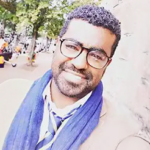 Larry Perry, II, Assistant Professor Larry Perry, II, Assistant Professor
College of Arts & Sciences
Perry’s work focuses on the history of the American Religious Left, its thoughts, thinkers, politics, practice and its intersection (or lack thereof) with racial justice in the U.S. His current book project is entitled A Black Spiritual Leftist: Howard Thurman and the Religious Left’s Unfinished Business of Race Relations. |

Sai Swaminathan, Assistant Professor
Tickle College of Engineering
Swaminathan’s research develops “smart” technologies for the built environment, enhancing understanding and interaction in these spaces for communities and individuals. His work seeks to address community challenges by finding novel, low-power computing devices with integrated sensing, actuation, and wireless communication. |
 Phoebe Tran, Assistant Professor Phoebe Tran, Assistant Professor
College of Education, Health, & Human Sciences
Tran’s research research focuses on improving secondary cardiovascular disease prevention in medically underserved US populations. She is especially interested in identifying sustainable and patient-centered strategies to improve access to care and quality of life among individuals with cardiovascular disease living in rural Tennessee. |
 Jorge Variego, Assistant Professor Jorge Variego, Assistant Professor
College of Music
Variego’s research in music composition aims to integrate my Argentine cultural influences, innovative technologies, and interdisciplinary approaches. He seeks to create pieces that transcend boundaries, fostering a deeper connection with all audiences. |
 Alejandro Vázquez, Assistant Professor Alejandro Vázquez, Assistant Professor
College of Arts & Sciences
Vázquez’s research focuses on identifying avenues for increasing mental health service access among Latinx youth and their families by leveraging advanced statistical approaches to improve scientists’ ability to identify, understand, and provide interventions for youths at-risk for developing emotional and/or behavioral problems. |



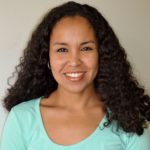
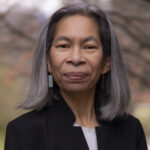

 Danielle Procope Bell, Assistant Professor
Danielle Procope Bell, Assistant Professor Sarah Bolivar, Assistant Professor
Sarah Bolivar, Assistant Professor Daniel Chavez, Assistant Professor
Daniel Chavez, Assistant Professor James Coda, Assistant Professor
James Coda, Assistant Professor Jamien Coleman, Assistant Professor
Jamien Coleman, Assistant Professor Dashawna Fussell-Ware, Assistant Professor
Dashawna Fussell-Ware, Assistant Professor KK Kersey, Assistant Professor
KK Kersey, Assistant Professor Hojung Kim, Assistant Professor
Hojung Kim, Assistant Professor
 Christina Najera, Assistant Professor
Christina Najera, Assistant Professor Cynthia Navarro Flores, Assistant Professor
Cynthia Navarro Flores, Assistant Professor Larry Perry, II, Assistant Professor
Larry Perry, II, Assistant Professor
 Phoebe Tran, Assistant Professor
Phoebe Tran, Assistant Professor Jorge Variego, Assistant Professor
Jorge Variego, Assistant Professor Alejandro Vázquez, Assistant Professor
Alejandro Vázquez, Assistant Professor
 Emine Fidan, Assistant Professor
Emine Fidan, Assistant Professor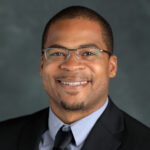

 Daleniece Higgins Jones, Assistant Professor
Daleniece Higgins Jones, Assistant Professor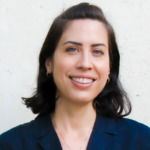




 Ahmedullah Aziz, Assistant Professor
Ahmedullah Aziz, Assistant Professor Leia K. Cain, Assistant Professor
Leia K. Cain, Assistant Professor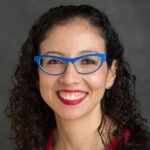





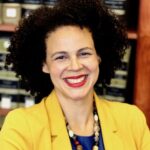 Sherley Cruz
Sherley Cruz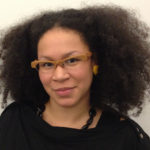 Felicia Francine Dean
Felicia Francine Dean Georgi Gardiner
Georgi Gardiner Denita Hadziabdic-Guerry
Denita Hadziabdic-Guerry Jiangen He
Jiangen He Mary Laube
Mary Laube Katherine H. Morgan
Katherine H. Morgan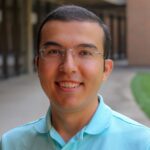 Mustafa Oz
Mustafa Oz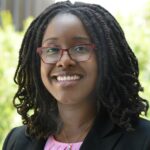 Codou Samba
Codou Samba Solange Muñoz
Solange Muñoz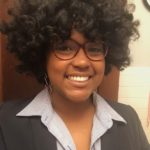 Paris Whalon
Paris Whalon